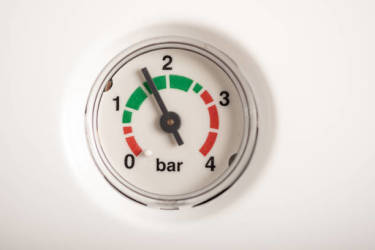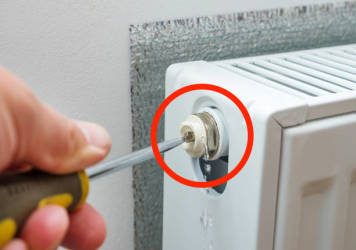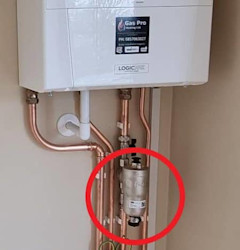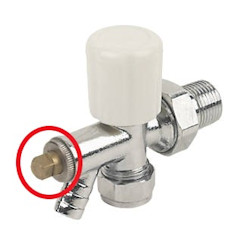How to Reduce Boiler Pressure
Boiler pressure is the pressure at which water circulates through your central heating system. Maintaining your boiler’s optimum pressure is important to efficiently supply your home with heating and hot water. If your boiler pressure is too high, leaks can develop within your central heating system. Read on to find out how to reduce boiler pressure.
Last updated - 07/10/2022
Estimated reading time - 7 minutes
What is boiler pressure?
Boiler pressure is the pressure at which water circulates through your central heating system.
If the boiler pressure is too high, leaks may develop within your central heating system. If your boiler pressure is too low, your radiators and hot water might take longer to heat up and your boiler will have to work harder to supply the central heating system with water, resulting in unnecessarily high energy bills!
What should my boiler pressure be?
Your boiler pressure will vary depending on if it is in use or not, but should be between 1 and 2 bar.
When your boiler is not in use, the pressure should be between 1 and 1.5 bar. If the pressure is below 1 bar, your boiler may stop working and will probably display an error code to inform you to top up the pressure.
When your boiler is in use, the water in the system heats up and expands, causing the boiler pressure to increase, but it should not go above 2 bar.
How do I check my bolier pressure?
Before knowing how to reduce boiler pressure, you first need to know how to check your boiler pressure.
To check the pressure on a combination or system boiler, you will need to locate its pressure gauge. The location of your boiler’s pressure gauge will vary depending on the make and model of your boiler, but will most likely be on the front of your boiler. If your boiler has a front panel, the pressure gauge will probably be underneath it. Some old boilers have a pressure gauge on their underside.

Regular, or heat only, boilers do not have pressure gauges as they use a feed and expansion tank to maintain a consistent level of water and pressure in the heating system, so you will never need to repressurise one.
Refer to your boiler’s manual to find the exact location of your boiler’s pressure gauge.
Once you have located your boiler’s pressure gauge, you will be able to see your current boiler pressure. This will be shown by where the needle on the pressure gauge is pointing.
How will I know if my boiler pressure is too high?
- The pressure gauge is over 2 bar
- Your boiler is making a rattling or humming noise
- You have a leak in your central heating system
Leaks in central heating systems usually start at the weakest link- where the pipework joins radiators. If you see puddles underneath any pipework along your central heating system, check to see if your boiler pressure is high. If you do have a leak, it’ll need to be fixed by a plumber.
If your boiler pressure becomes too high, your boiler's pressure relief valve will trigger to release some pressure. A pressure relief valve is a tap that opens and closes to help prevent a build-up of pressure.
You should not rely on the pressure relief valve to prevent high boiler pressure as it’ll be inefficient, and it could be dangerous if the relief valve is faulty or jammed.
Why is my boiler pressure too high?
Your boiler pressure may be too high for a number of different reasons, but three of the most common are:
The water pressure was topped up too much
Your boiler may have had low pressure and was topped up to increase it. Topping up the pressure too much may be why your boiler pressure is now too high.
When boilers are in use, the water in the central heating system expands, which results in a rise in pressure.
If you topped up your boiler pressure more than necessary, turning on the boiler will increase it even more and will result in your boiler pressure becoming too high.
The filling loop is not completely closed
Your boiler’s filling loop is used to allow water from the mains into your central heating system so that you can top up your boiler pressure when needed. If the filling loop is not completely turned off, water from the mains will continuously fill up your central heating system. This continued water flowing into the system will raise the pressure in your boiler.
A faulty expansion vessel
Your boiler’s expansion vessel is a tank that contains water and air, and its purpose is to protect against excessive pressure by maintaining the right level of pressure in the boiler system.
Too little air in the expansion vessel could result in your boiler pressure being too high.
If there is a fault with your boiler’s expansion vessel, you will need a Gas Safe engineer to diagnose and fix the issue.
Avoid unexpected costs.
With a Smart Plan cover policy, you can rest easy knowing if there's an issue with your boiler, we'll usually have you back up and running within 48 hours.
How to reduce boiler pressure
Bleed a radiator
The most common way to reduce boiler pressure is to bleed a radiator. Bleeding a radiator removes excess water and air from the central heating system and can easily be done with a radiator key. A radiator key is a small butterfly-shaped key (see image). If you don’t have one, you can buy one online or from your local DIY shop for a few pounds. Alternatively, you can use a flat-head screwdriver.

How to reduce boiler pressure by bleeding a radiator:
- Turn off your central heating
- Place a jug underneath the bleed valve (see image) on the radiator to catch the water that will be released once you start bleeding the radiator
- Insert the radiator key, or a flat-head screwdriver, into the radiator bleed valve and turn it slowly in an anti-clockwise direction
- Allow some water and air to be released from the radiator
- Check the pressure gauge on your boiler. Once it has gone down to 1 bar, close the valve
- Turn your central heating back on and check that your radiators are heating up properly

Open the central heating filter or drain-off valve
Many central heating systems have a system filter. Water continually cycles through the system filter in order to remove impurities. The central heating system filter can also be used to reduce boiler pressure.
The system filter can normally be found on the piping underneath your boiler (see image) and will have a valve on its underside.

How to reduce boiler pressure using the system filter:
- Put a bucket under the system filter
- Turn the spout at the bottom of the system filter to release some water
- Wait for the boiler pressure to drop to 1 bar, then retighten the spout
If you don’t have a system filter, then you probably have a drain-off valve instead. A drain-off valve is a mechanical device used to release excess or unwanted quantities of water from your central heating system. It will be a Y or T-shaped (see image) component and will require a spanner to open. Drain-off valves could be located anywhere along the central heating system’s piping, but they are often located on the piping close to a radiator.

How to reduce boiler pressure using a drain-off valve:
- Put a bucket under the drain-off valve
- Use a spanner to open the valve and keep an eye on your boiler's pressure gauge
- Close the drain-off valve once the pressure gauge reaches 1 bar
What if I reduce my boiler pressure too much?
If you have reduced your boiler pressure below 1 bar, you can easily increase it by topping up the system. Topping up the system allows more water to enter the boiler system in order to increase boiler pressure.
Click here, to find out how to increase your boiler pressure.
What should I do if my boiler pressure is still too high?
If you have taken steps to reduce boiler pressure but it is still too high, there may be an issue with the pressure relief valve, the filling loop, the expansion vessel, or another issue that will only be able to be diagnosed and fixed by a professional.
Let us fix your boiler.
At Smart Plan we have thousands of engineers up and down the country who are ready to fix your issue. We guarantee an engineer to your property within 48 hours.

